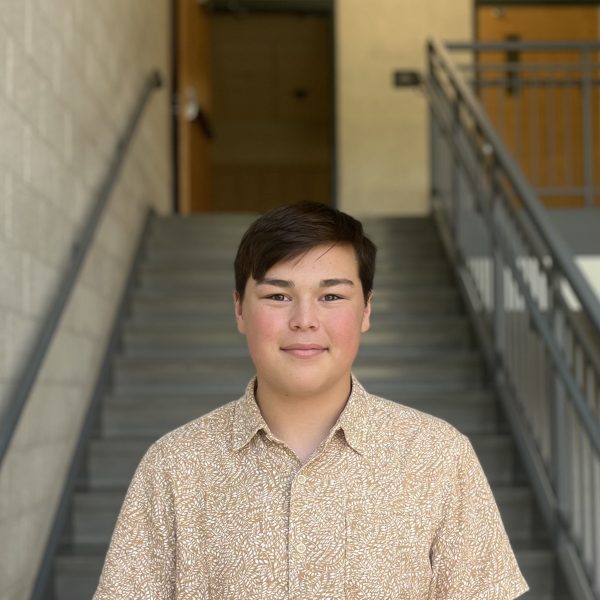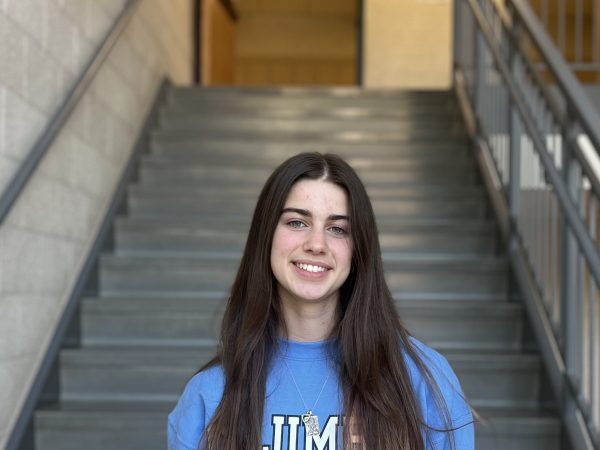Algonquin coaches enjoy a rewarding experience through successful connections during each sports season, despite the time commitment, which can become straining when paired with time spent teaching.
Roughly 18 Algonquin faculty members coach sports at the school, and more coaches are connected to Algonquin academically through other roles in the district. Health and Fitness teacher and three-season coach Kristen Morcone is a prime example of an educator who coaches. She now coaches volleyball, ski team and softball, which she enjoyed during her own high school experience.
“My favorite sport to coach is whatever season I’m in, and I used to say that when I played sports too,” Morcone said.
Being a coach to so many athletes throughout the three seasons, Morcone interacts with many student-athletes in both academic and athletic settings.
“I always tell my student-athletes that they’re students during the day and athletes after school,” Morcone said.
For Morcone, time spent both on and off the field and court facilitates her strongest relationships with her athletes and makes coaching enjoyable.
“There’s nothing more rewarding than staying in contact with my student-athletes after they graduate and seeing where they go to school and what job they get,” Morcone said. “It’s awesome to see what kind of people they turn into and all they accomplish.”
Math teacher, cross country coach and track coach Patrick Galvin also expressed his love for connecting with his students through sports.
“Seeing students outside of the math classroom opens me up to see a student’s full personality and who they are,” Galvin said. “Sometimes when I have students in class I don’t get a full vision of that person, and it’s harder to understand who that person really is.”
These connections from outside the classroom can make their way into the class as well, according to junior cross country and track runner Jonah Gould.
“At the start or the end of class, [Mr. Galvin and I] would talk about running,” Gould said. “Nothing too big but just small chitchats here and there.”
In addition to forming athletic and academic connections, Galvin is also excited by the nature of the sports that he coaches and watching students succeed.
“One of the best parts about specifically coaching cross country or track and field is objectively seeing improvement for every single person on the team,” Galvin said.
Although celebrating victories for each team member is enjoyable for Galvin, coaching is a massive time commitment. Galvin spends nearly 25 hours devoted to coaching weekly, and Morcone also noted spending roughly three or four extra hours at Algonquin each day during sports seasons.
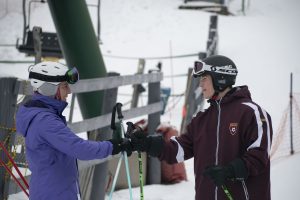
“I love coaching, and for as long as I’ve been teaching, I’ve been coaching,” Galvin said. “But now having a family, a home, a wife, a child, there are other priorities in life that make it challenging to balance the time commitments.”
Balancing time between coaching, teaching and outside commitments is no easy feat, and some staff, such as English teacher and former volleyball coach Lindsay Coppens, have stepped away from coaching to focus on other priorities.
“The only reason I stopped [coaching] is because I had my daughter,” Coppens said. “I tried to figure out a way that I could continue being a part of the volleyball coaching staff, but it wasn’t possible.”
Coppens loved coaching in general and her sport, even being known to jump in for drills with her team frequently. However, the amount of time that sports require made it difficult for her to stay involved.
“For the games, and especially the away games, I wouldn’t get home until after [my daughter’s] bedtime, and I realized that I didn’t want there to be days that I didn’t see my child at all when she was awake,” Coppens said.
Even after stepping away, Coppens sees the value in the connections that she made with her team.
“There’s a reason why people coach a team for years and years,” Coppens said. “Yes, you get a little bit of extra money which is nice, but people stick with coaching for a while because you make relationships and get invested in the program over time.”
Athletic Director Mike Mocerino also finds solid and similar importance in the connection between high school athletes and their coaches.
“A strong connection with the coach can contribute to the development of a player, helping them not only as athletes but also as individuals,” Mocerino said via email. “High school athletics is not just about winning games; it’s also about character development and the overall experience.”
Overall, a connection between a coach and their athletes fosters growth for both parties, as each can grow from learning about and from the other.
“There are many advantages to having Algonquin teachers as coaches – a balance between teaching skills, coaching experience and a passion for the sport will contribute to an approach that benefits the students both on and off the field,” Mocerino said via email.



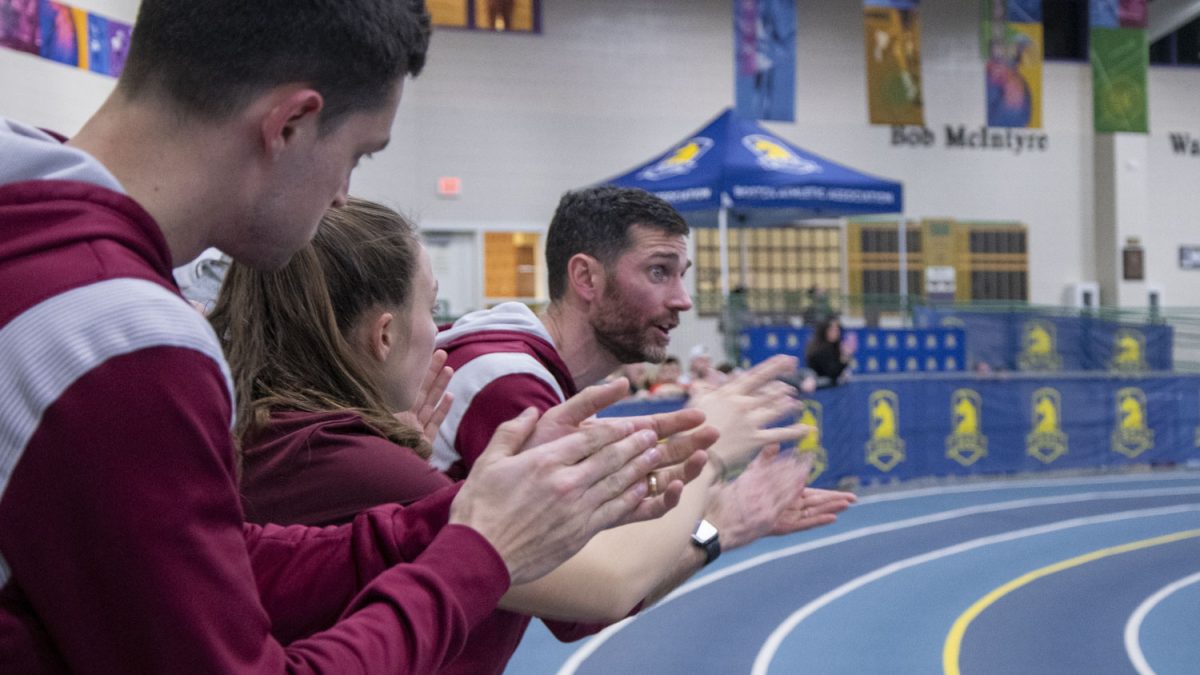
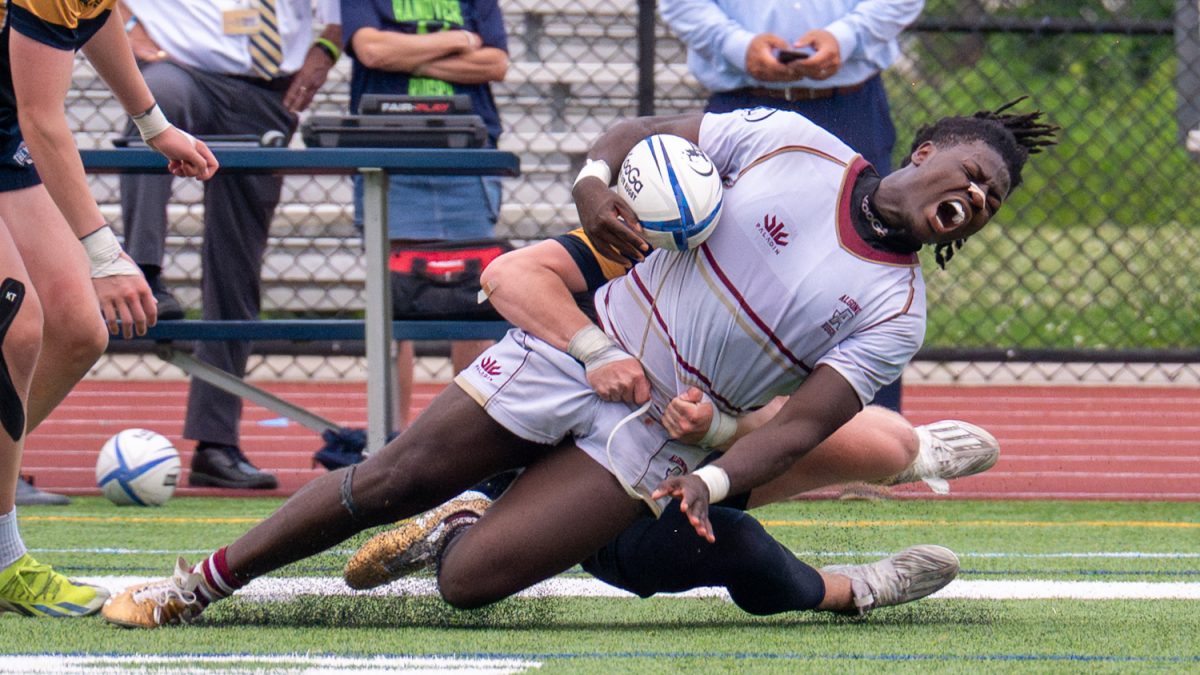
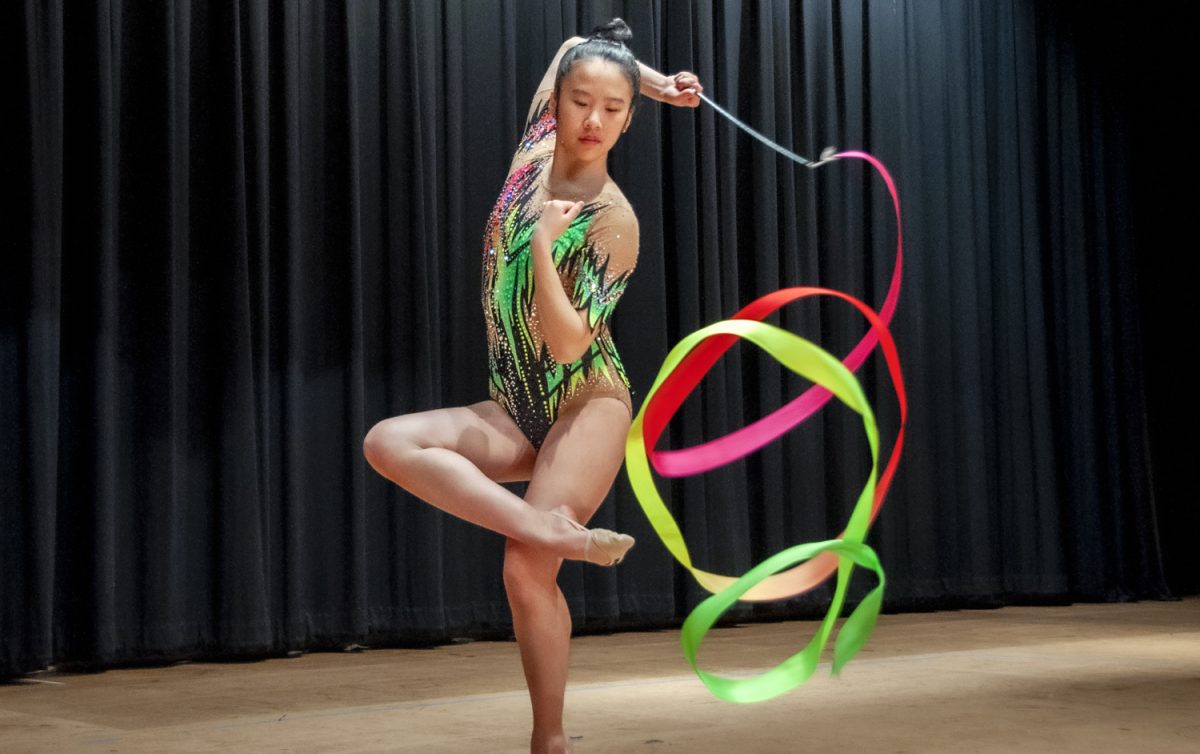

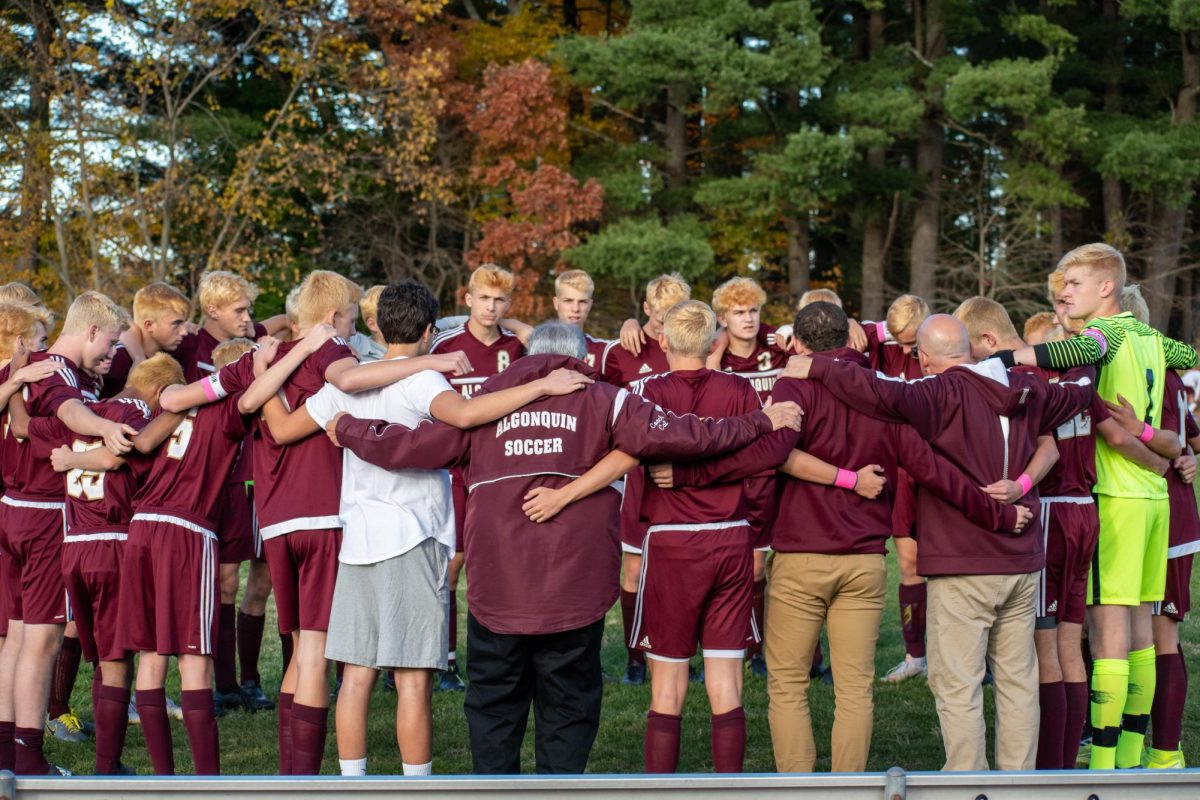
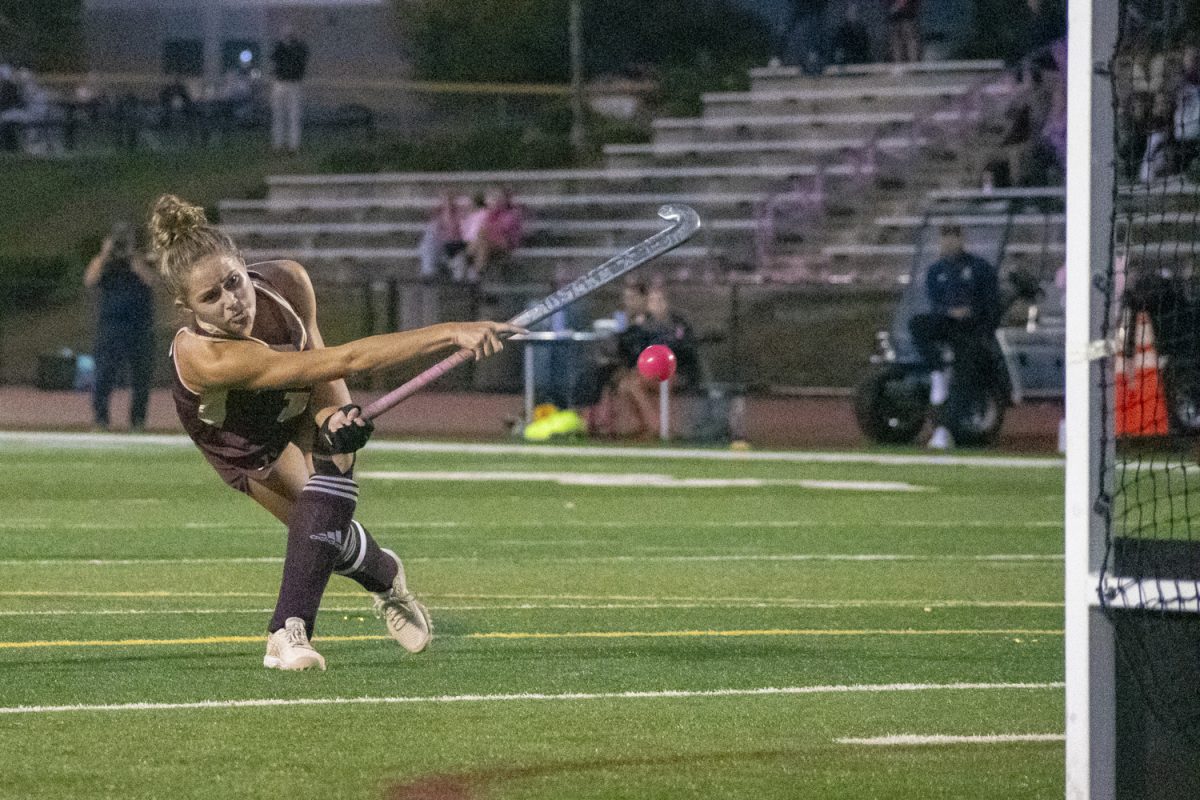
![Senior Benoit Skilton misses his final jump at 14 feet for pole vault at the Division 2 Outdoor Track and Field Championship meet at Merrimack College. When asked about a message he would give to anyone, he replied, "Never give up. There is never a single time where giving up is the best option... Every jump is different. Every jump is a chance to clear [the bar]." Skilton tied the Algonquin school record again and his own personal best of 13'6."](https://arhsharbinger.com/wp-content/uploads/2025/05/0529-States-White1140-Enhanced-NR_1500-1200x800.jpg)
